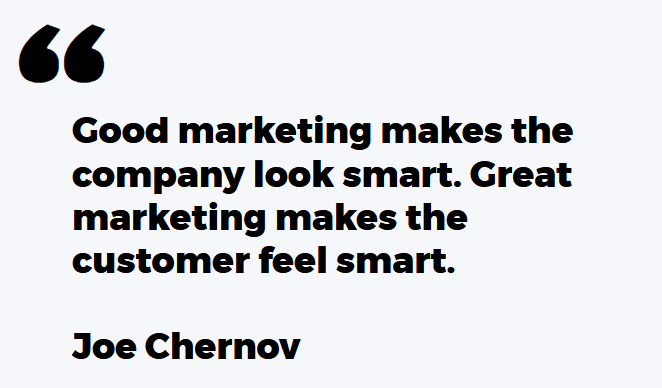So, you want to be a marketing manager (or other marketing professional) – but perhaps you’re not entirely sure what’s expected of you?
Well, firstly, congratulations on an excellent choice, both in terms of your career, and in your taste of articles, because here we’re going to cover everything you need to know about marketing careers.
Let’s start with the basics, ok?
What Is A Marketing Manager And How Do I Become One?

Marketing is a fairly nebulous term, which makes it difficult to sum up in a short marketing job description what exactly it means.
Marketing at your company might mean something very different than marketing at another company depending on its size, its target market, its marketing philosophy, and its budget.
Still, when it comes down to it, we can safely say that marketing is really just sales.
Your job, as a marketer, is to present your company’s product or service in a positive light to its target audience, in a way that creates buzz, attention, and for all intents and purposes drives more sales for the company.
Now, specifically, a managerial role might be exactly what it sounds like—you may be managing other marketing specialists, setting the priorities, reviewing their work, and presenting to higher level executives on your team’s progress.
However, in the absence of a team, you might be executing the campaigns yourself (and still doing all of the above).
Interested in becoming a marketing manager?
Typical advice will point you to things like earning your bachelor’s degree in marketing / business administration and joining a professional organization like the American Marketing Association (AMA).
Essentially, a litany of professional qualifications, some of which may no longer even be open to you!
But, don’t worry, I recommend the following, and you can get started on all of them today:
First, get experience as a marketer! If no one will hire you, then start your own project, even if it’s just something on the side.
Meanwhile, educate yourself by reading about marketing online—there are a ton of resources.
Frankly, you’ll learn a lot more this way and it shows much more initiative when it comes time to talk about what you’ve done during an interview.
Next, develop your personal brand. Once you have experience, you have the right to exercise it, by speaking at events, or simply on marketing podcasts.
Write a blog, and write guest posts on other prominent blogs. Consult for companies. If no one will hire you, try working in exchange for a testimonial / reference to build up some contacts and more experience.
Finally, now that you have experience and a personal brand, take that credibility and network, network, network!
Doing this will turn the tables and people will be asking you to be their marketing manager instead of the other way around.

How Long Does It Take To Become A Marketing Assistant, Manager, or Director?
Well, how long will it take you to do all of the above?
There’s no set time frame per sey, because, unlike becoming a doctor or a lawyer, there is no set path. It depends on how fast you can acquire experience, a network, etc.
Generally speaking though, you’re looking at a few years for each step, which is to say that you could probably become a marketing assistant without too much effort, and after a few years, a marketing manager, and finally after a few more years, a marketing director.
What Skills Are Needed To Be A Marketing Manager?
Marketers, by nature, tend to play in everyone’s backyard. They may communicate with the design team, with the product team, with executives and assistants alike. As a result, it helps to have a diverse set of skills, such as:
- Being a persuasive communicator, especially possessing a good writing ability: You’re going to be talking with a lot of different folks, and potentially leading a team. This requires you to have top notch interpersonal abilities, and perhaps above all the ability to sway people in the direction you want them to go, whether it’s to supply you the budget to run a test or to try out a new marketing tool. Additionally, writing is still king when it comes to mass communication in the form of presentations, emails, briefs, and copywriting.
- Being a decisive leader: Did I mention you might be leading a team? If so, it will be your job to motivate and propel everyone forward. Perhaps the most difficult aspect, however, are the daily decisions you’ll have to make in regards to the marketing campaigns you’re running (which design should we go with? Should we stop the campaign, or wait for more results?).
- Possessing an analytical mind: Luckily, you won’t be responsible for any NASA level math, however, it helps greatly to be familiar with the fundamental concepts of statistics, and being able to manipulate data (often in a spreadsheet like excel or google docs), to tease out the insights that are hidden there.
- Being creative: It’s a noisy, noisy world out there, and chances are your product/service is not alone. If you want to get noticed, you’ll have to come up with creative approaches that speak to your target market.
What Are A Marketing Manager’s Jobs & Responsibilities?
While every company operates differently, it wouldn’t be uncommon for a marketing manager to have the following responsibilities.
- Setting the marketing calendar: People need to be told what to work on, and executives want a high level, transparent way to see what work is being done. A possible solution is to create some kind of marketing calendar or marketing board, which include what campaigns are active, who’s working on them, when they’re expected to be completed, and what other ideas are in the pipeline for later. Here’s how ours looks:

- Leading a daily standup: You have to keep your team focused, and make sure they’re working on the proper priorities and hitting deadlines. While you’ll probably communicate with each person individually in person or using a chat app like Slack, a daily standup is an effective way to bring everyone together to discuss objectives, progress, and to make adjustments with everyone’s input.
- Reviewing progress / results: As your marketing assistants will be responsible for executing the campaigns for you, you’ll be needed to advise on the results and set the clear next steps. For example, you may have to review the results of a recent A/B test that was run to determine if the control should remain or be replaced.
- Reporting to executives: A manager is a mid level position that typically is the bridge between executives and assistants, which means you’ll constantly be taking the results from your assistants and summarizing them for the executives, while simultaneously taking the business objectives from the executives and using them to set priorities for your assistants.
- Making budget recommendations: Depending on the size and level of involvement of your finance department, you will probably be responsible for some degree of budgeting, which is to say that you will have to make recommendations on which tools should be bought, which campaigns deserve more or less money based on their results, etc.
What’s It Like Being A Marketing Manager?
Your company’s culture is probably going to have the largest effect on your day to day. Some companies have very strict deadlines, operate under a tight budget, demand a high level of results, whereas others tend to operate a lot more loosely, have more cash to burn, and are comfortable with more qualitative insights.
In short, being a marketing manager can be stressful, just like all types of managerial jobs, but it can also be very rewarding as you traditionally have a lot of control and influence in the company’s branding and the way it ‘speaks’ to customers, which, aside from being a very powerful position, allows for a large degree of creativity.
Should I Learn Digital Or Traditional Marketing?
Digital marketing is essentially marketing applied through digital channels.
Now, marketing has always been about getting in front of your target audience. However, your audience has likely changed in the last decade or so.
More people are gravitating towards digital, which is why more marketers are developing an expertise in this area.
Consider where you typically get your information from. If you’re like most people, chances are it’s things like:
- Your email
- Your phone
- Websites you visit
As opposed to more traditional media such as:
- Magazines
- Billboards
- Radio
Of course, that’s not to say that traditional media outlets are obsolete—far from it, BUT certainly the trend is digital.
Overall, your company will dictate its marketing strategy, still, keep an eye out for opportunities in the digital space.
What Do Marketers Make For A Salary?
The answer to this question is going to vary significantly based on factors such as:
- Which country do you live in?
- Do you live in a major metropolitan area?
- Is the company you work for, for profit?
- How many years of experience do you have?
In short, we can supply some statistics from the US Bureau of Labor to give a general idea of salaries for a few marketing roles – but at best this is a guideline. If you have a specific company you’re targeting, see if they’re on GlassDoor to get a glimpse of the salaries and culture.
All in all, Perhaps the most useful thing one can say is that being a marketer, specifically a marketing manager or higher, is an above average salary just about wherever you are.
| Marketing Career | Median Annual Salary* |
|---|---|
| Marketing Specialist | $61,290 |
| Market Research Analyst | $61,290 |
| Advertising Manager | $123,450 |
| Public Relations Manager | $101,510 |
| Marketing Manager | $123,450 |
Sources: U.S. Bureau of Labor Statistics Occupational Outlook Handbook, 2016-17 Edition
And perhaps most importantly, is that marketing is a career that, while always evolving, is very unlikely to ever become obsolete (people will always have things to sell), and in most places is growing faster than other careers.
For example, LinkedIn shows over 16k job openings for the role “Marketing Manager”.

What Tools Do Marketers Use?
It’s not uncommon for a marketer to be versed in dozens of different tools, and while there is much more to marketing than the tools you know, it’s definitely important to be well versed in a variety of tools for things like acquisition, analytics, customer management, content creation, and a whole host of other marketing activities.
We’ve recommended the tools that we personally use at NinjaOutreach here and I encourage you to look through them, not only to see if there are any ones you’re not familiar with, but also to understand the different topics and purposes for which tools exist.
What Marketing Terms Should You Know?
New marketing terms surface every year, and the easiest way to stay abreast of what’s trending is to always be learning i.e reading blog posts, listening to podcasts, and attending conferences.
However, some terms seem to never die. I won’t reinvent the wheel by defining what’s already been defined, but instead will list the 99 Top Marketing Terms identified by Hubspot, to which you can reference the ones that seem unfamiliar to you.
- A/B Testing
- Analytics
- Application Programming Interface (API)
- B2B (Business-to-Business)
- B2C (Business-to-Consumer)
- Blogging
- Business Blogging
- Bottom of the Funnel
- Bounce Rate
- Buyer Persona
- Call-to-Action
- CAN-SPAM
- CASL
- Churn Rate
- Clickthrough Rate (CTR)
- Closed-Loop Marketing
- Conversion Path
- Content
- Content Management System (CMS)
- Content Optimization System (COS)
- Context
- Conversion Rate
- Conversion Rate Optimization (CRO)
- Cost-per-Lead (CPL)
- Crowdsourced Content
- Customer Acquisition Cost (CAC)
- Customer Relationship Management (CRM)
- CSS
- Dynamic Content
- Ebook
- Editorial Calendar
- Engagement Rate
- Evergreen Content
- Form
- Friction
- Google+
- Hashtag
- HTML
- Inbound Marketing
- Inbound Link
- Infographic
- JavaScript
- Key Performance Indicator (KPI)
- Keyword
- Landing Page
- Lead
- Lead Nurturing
- Lifecycle Stages
- Lifetime Value (LTV)
- Long-Tail Keyword
- LTV:CAC
- Marketing Automation
- Microsite
- Middle of the Funnel
- Mobile Marketing
- Mobile Optimization
- Monthly Recurring Revenue (MRR)
- Native Advertising
- Net Promoter Score (NPS)
- News Feed
- No-Follow Link
- Offer
- On-Page Optimization
- Off-Page Optimization
- Page View
- Pay-per-Click (PPC)
- PPC
- Qualified Lead
- QR Code
- Responsive Design
- Return on Investment (ROI)
- Retweet
- Search Engine Optimization (SEO)
- Sender Score
- Service Level Agreement (SLA)
- Small-to-Medium Business (SMB)
- Smarketing
- Snapchat
- Social Media
- Social Proof
- Software-as-a-Service (SaaS)
- Top of the Funnel
- Unique Visitor
- URL
- User Experience (UX)
- User Interface (UI)
- Viral Content
- Website
- Word-of-Mouth (WOM)
- Workflow
- XML Sitemap
- YouTube
- Zilch
Is A Career In Marketing For You?

Well, there you have it—you’ve been properly debriefed on what you’re in for if you decide to pursue a career in marketing!
Personally, as a marketer myself, I find it’s been a rewarding career that keeps me challenged and curious just about daily, and for that reason, recommend it for someone who is genuinely interested in this exciting field.
